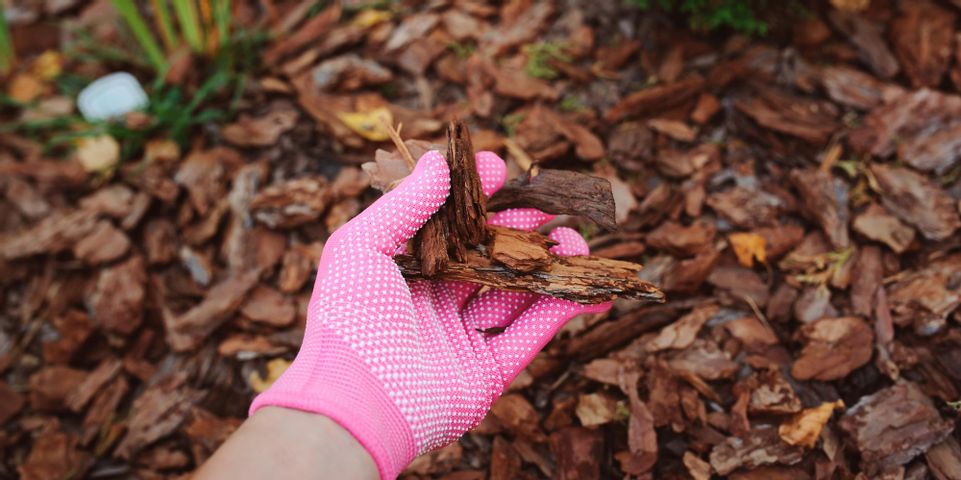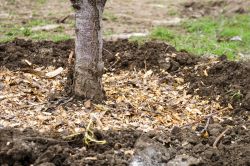
No landscaping is complete without ample garden products to keep it thriving. For example, mulch is essential for providing nutrients, warmth, and moisture to your trees and plants. Nevertheless, some landscapers and gardeners hesitate to apply it or aren’t aware of proper usage techniques. By dispelling some myths about mulch, you may learn to use it well and see how your property benefits.
5 Common Misconceptions About Mulching
1. No Limits Necessary
Plants and trees certainly benefit from the plethora of nutrients that mulch releases into the soil, but only when you pace them. Layers exceeding three inches in height tend to suffocate your plants and create enough moisture to grow mold. Also, many landscape designers recommend mulching only in the spring and fall, so avoid continuously piling it on throughout the year.
2. Volcanoes Help Trees
 A volcano of mulch looks like a high mound around the base of a tree with a few inches of breathing space between the trunk and the mulch.
A volcano of mulch looks like a high mound around the base of a tree with a few inches of breathing space between the trunk and the mulch.
Like other plants, however, trees need more access to oxygen, and a large pile of mulch can suffocate them while producing mold. Although they’re bigger than most plants, they just need a modest ring of mulch measuring about three inches high.
3. Invites Pest Infestations
Termites and other pests make their homes in cool, damp areas with wood, so many property owners worry that garden products like mulch will lead to infestations. Fortunately, however, pests are seldom attracted to mulch because it’s not as cozy or tasty as live or fresh wood.
Regardless, keep the mulch at least six inches away from the foundation of your home to prevent pests from coming inside if they do happen to be drawn to your mulch.
4. Causes Pet Illness
It’s possible to add chocolate and rotted food to mulch. However, if your mulch doesn’t include such ingredients, your pet won’t get sick from eating it. Some pets like to chew on wood chips, shavings, straw, hay, and similar garden products, but most avoid them. If your pet tries to eat your mulch, it could simply signal a need for diet change.
5. Damages Soil
There are claims that mulch removes nitrogen from the soil, but in reality, it adds nitrogen to the soil by gradually breaking down. Although it’s possible for mulch to slightly acidify the surface of the soil, the roots are unaffected. The only way mulch could be unhelpful would be if you placed a landscape fabric beneath it, keeping the nutrients from soaking into the soil.
To find excellent mulch and other garden products, go to Glynn Young's Landscaping & Nursery Center in Nicholasville, KY. Their 6.5-acre garden center has been offering a variety of high-quality tools and products to professional landscapers and property owners alike since 1988. Staffed by Kentucky Certified Nurserymen, they’re always ready to provide expert advice and services so that your property thrives. For details, call (859) 885-6100 or visit them online.
About the Business
(92 reviews)
Have a question? Ask the experts!
Send your question

